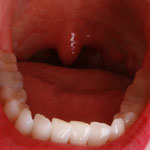
The effects some medicines have on our salivary glands can at times extend beyond the fleeting flavor we experience upon ingesting them. Sometimes drugs cause a prolonged bad taste or dryness in the mouth, both of which can discourage people from taking medicines they need. Now, a research team led by Joanne Wang of the University of Washington has discovered a possible mechanism behind this phenomenon. Working primarily with mice and using a commonly prescribed antidiabetic drug known to impair taste, the scientists identified a protein in salivary gland cells that takes up the drug from the bloodstream and secretes it in saliva. Wang and her colleagues were also able to pinpoint a specific gene that, when removed, hindered this process. They hope their new insights will aid efforts to develop medicines that do not cause salivary issues.
This work also was funded by NIH’s Eunice Kennedy Shriver National Institute of Child Health and Human Development.
Learn more:
University of Washington News Release ![]()

